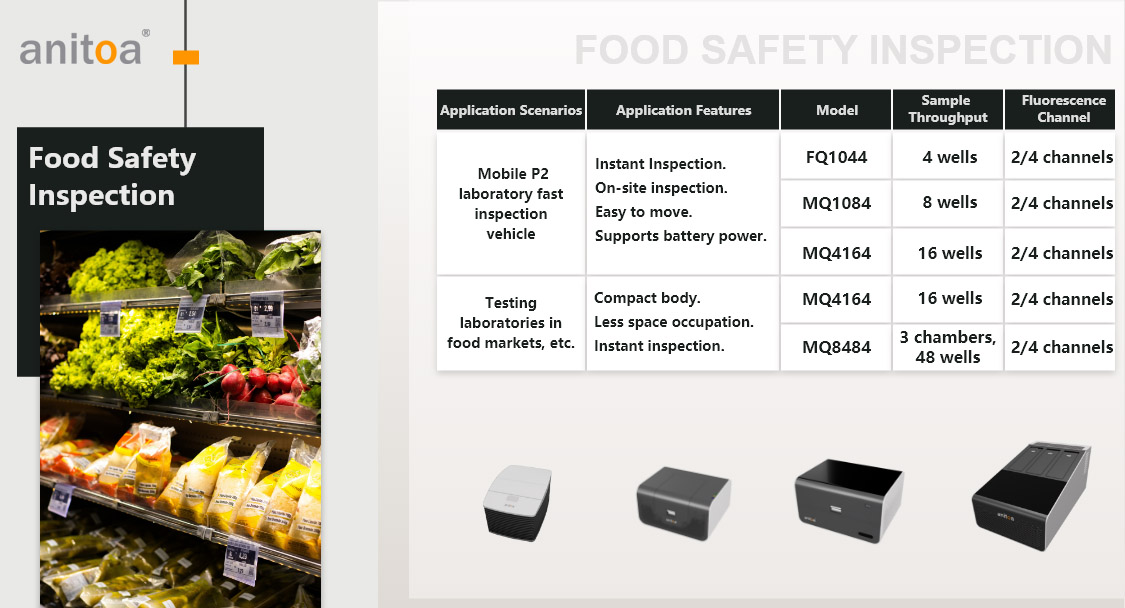The Benefits of qPCR for Ensuring Food Safety
As the demand for safe and high-quality food continues to grow, the use of advanced technologies such as quantitative polymerase chain reaction (qPCR) has become increasingly important. In the field of food safety, qPCR offers a number of benefits in terms of effectiveness and cost-efficiency.
Overview of qPCR
qPCR is a molecular biology technique that allows researchers to detect and quantify DNA or RNA in a given sample. It works by amplifying a specific region of DNA or RNA, using fluorescent probes to monitor the amplification in real-time. This enables researchers to quantify the amount of DNA or RNA present in the sample, allowing them to detect the presence of specific pathogens or contaminants.
Applications in Food Safety
qPCR has a wide range of applications in the field of food safety. One of its primary uses is in the detection of foodborne pathogens, such as Salmonella, Listeria, and E. coli. By targeting specific regions of the pathogen's DNA or RNA, qPCR can detect even small amounts of the pathogen in a given sample. This allows food producers and regulators to quickly identify and respond to potential outbreaks, preventing the spread of illness.
In addition to pathogen detection, qPCR can also be used to detect and quantify food allergens. For individuals with severe food allergies, even trace amounts of the allergen can cause a life-threatening reaction. qPCR provides a highly sensitive and specific method for detecting the presence of allergens in food products, ensuring that they are labeled and handled appropriately.
Benefits of qPCR in Food Safety
One of the primary benefits of qPCR is its high sensitivity and specificity in detecting target pathogens and contaminants in food samples. This is achieved by the amplification and detection of specific DNA or RNA sequences using fluorescent probes, allowing for the detection of even small amounts of the target material. This level of sensitivity and specificity reduces the risk of false positives or false negatives, which can be costly in terms of time, resources, and potential health risks.
Another benefit of qPCR is its speed and accuracy. qPCR can detect and quantify pathogens or contaminants in a matter of hours, compared to days or even weeks for traditional culture-based methods. This faster detection and quantification process allows for quicker responses to potential outbreaks and improves overall food safety.
qPCR is also highly versatile in terms of its ability to detect a range of target materials. This includes a variety of foodborne pathogens, such as Salmonella, Listeria, and E. coli, as well as allergens and other contaminants. This versatility makes qPCR an essential tool in ensuring that food products are safe and accurately labeled.
Cost-Effectiveness of qPCR in Food Safety
In addition to its effectiveness, qPCR is also cost-effective in comparison to traditional methods of pathogen detection. While the initial cost of qPCR equipment may be higher, the cost of consumables, labor, and time required to perform tests is often lower. For example, qPCR can be performed using smaller sample volumes and requires less time and labor than traditional culture-based methods. This can lead to significant cost savings for food producers and regulators, as well as increased efficiency and productivity.
Furthermore, the use of qPCR can reduce the need for costly recall efforts and potential legal action resulting from outbreaks of foodborne illness. The faster and more accurate detection provided by qPCR allows for quicker response times, reducing the likelihood of widespread outbreaks and the associated costs.
qPCR has become an essential tool in ensuring the safety and quality of our food supply.
Its high sensitivity and specificity, speed and accuracy, and versatility in detecting a range of target materials make it a highly effective and cost-efficient option for food safety testing. By utilizing qPCR in food safety testing, food producers and regulators can improve efficiency, reduce costs, and ultimately, ensure that the food we consume is safe and of the highest quality.

Professional Portable qPCR System Manufacturer - Anitoa
At Anitoa, we are committed to innovation in the development of rapid, small-sized qPCR technology. Our mission is to provide affordable and easy-to-use solutions that empower researchers and professionals to advance their work in various fields, including food safety. Our cutting-edge qPCR instruments are designed to meet the needs of users with diverse applications, from laboratory research to on-site testing.
With our focus on quality, reliability, and affordability, Anitoa is dedicated to helping our customers achieve their goals in food safety and beyond.